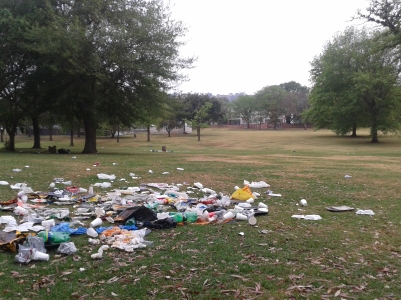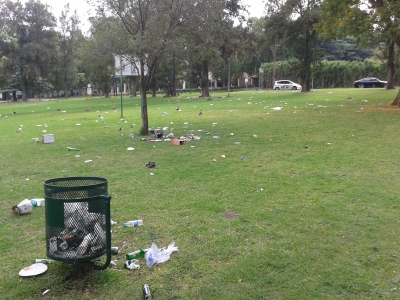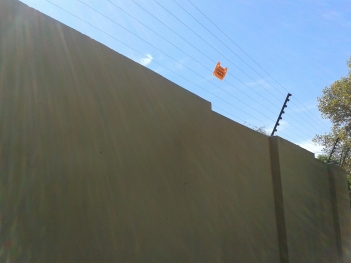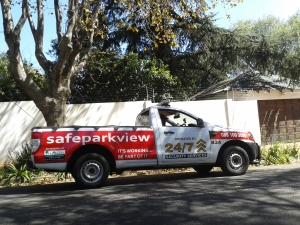Johannesburg’s Zoo Lake park on a Sunday morning in summer looks more like a rubbish dump, than the wonderful ‘Central Park’ facility we are privileged to have in this city. I walk my dogs there most weekends and have become increasingly appalled at the wanton littering from the previous day’s parties.
I don’t know what it is that allows revellers to dump their litter – bottles, cans, paper plates, plastic cups, plastic bags, food scraps and all sorts of junk – on the grass, under the trees, in or near the ponds, often within throwing distance of a litter bin. It boggles my mind. And the often heard cheap remark that littering ‘creates a job for someone’, to me demonstrates a mindless disregard and disrespect for our environment and our fellow citizens.
So what is the solution?
Is it to have better policing of our parks and public spaces? Is it the enforcement of fines and penalties? Is it fencing off our parks and charging entry fees? Perhaps it is some or all of these.
Or perhaps there is another way.
How about ‘littering’ our parks with waste bins?
Bins everywhere. Under every tree, across all the lawns, at all entry and exit points and alongside all ponds, viewpoints and car parks. A sea of waste bins, as far as the eye can see, such that no-one can go anywhere without having to pass a set of bins.
Not only rubbish bins, but colour coded bins which could encourage recycling. Green bins for bottles, blue bins for paper, red bins for plastics, yellow bins for cans and black bins for food waste and other rubbish.
What if the picnickers and would-be litterers were confronted by clumps of colour coded waste bins, wherever they chose to settle for the day’s party? Bins that were clearly marked: ‘BOTTLES’, ‘PAPER’, ‘PLASTICS, ’CANS’ and ‘GENERAL RUBBISH’. All urging them to repose their litter and separate it into recyclable categories. With park rangers or metro police circulating among the public, NOT imposing fines or admonitions, but EDUCATING people on the values of recycling their litter and contributing to a respectful and clean environment.
Yes, there would probably be an outcry.
‘Infringement of our rights by restricting our use of public spaces.’
‘Spoiling our public spaces by cluttering them with bins.’
‘Killing the natural beauty of our public parks.”
But then, would it be not preferable to see bins all over that park, rather than see mounds of litter strewn all over the place? Might we not end up with a cleaner park, which we could enjoy so much the better? And is this not a huge opportunity for us to educate our children and our fellow citizens on the values of recycling and in having a respect for our valuable public spaces?
How could we make this happen?
I feel sure that:
- Recycling companies could easily fund the provision of bins with the value of waste material collected.
- Suitably designed bins could be made as attractive as possible.
- Bins could be securely fixed in place so as to avoid their theft.
- Parks departments and local municipalities could collect litter more efficiently if their staff were employed to empty bins rather than having to pick up loose items from the ground.
- Rubbish or waste, if contained in bins, would be less likely to be carried by the wind to other parts of the area.
- By ‘imposing’ bins rather than fines, we could discourage the current culture of littering and create an educational opportunity for more sensitive environmental awareness.
In order to promote a BIN CULTURE rather than a LITTERING CULTURE, my challenge is this:
- To recycling companies – to do the maths on the provision of bins in relating to the values of recyclable material collected.
- To designers – to produce an eye-catching design for bin clusters, which are functional, manageable, secure and that clearly spell out the recycling message.
- To local municipalities and parks departments – to think ‘out of the box’ and see the possibilities of staff education and in employing ‘public advisors’ rather than ‘law enforcers’ to patrol our parks and public areas.
- To the citizens of our cities and towns and to those who use our recreational parks and public spaces – to see the value of a litter free environment, in which we can all benefit.
- To readers of this post – to propose a better solution if you have one.





